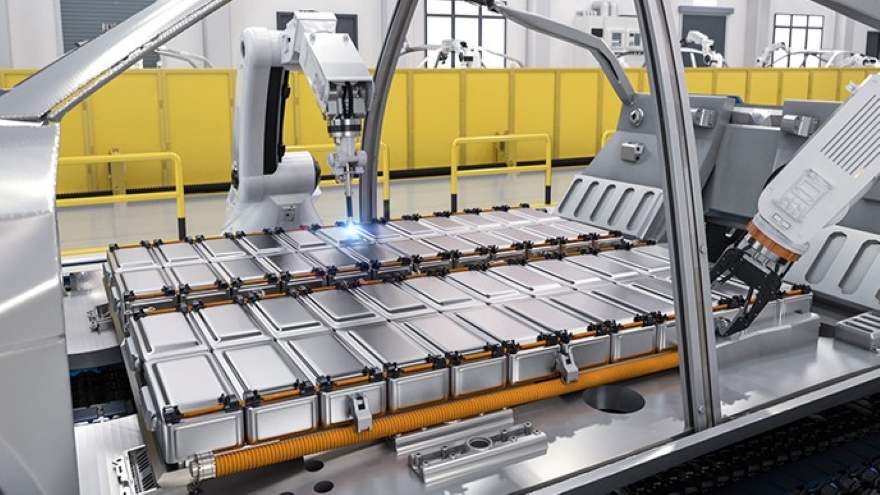SME launches training and certification for EV manufacturing and technicians

Image courtesy of SME.
By subscribing, you agree to receive communications from Auto Remarketing and our partners in accordance with our Privacy Policy. We may share your information with select partners and sponsors who may contact you about their products and services. You may unsubscribe at any time.
SME, a nonprofit committed to accelerating new manufacturing technology adoption and building North America’s talent, has added a new training program, and an electric vehicle fundamentals certification to serve the quickly evolving talent needs in the electrification market.
SME said the expansion builds on its long history serving the automotive industry’s talent needs and accelerating industry technology advancements such as additive manufacturing and automation.
Various projections show EV could make up as much as 50% of auto sales by 2030, which, according to the Economic Policy Institute, could potentially create more than 150,000 new jobs related to the production and maintenance of electric cars. EV growth would also spur job creation across the broader electrification ecosystem.
SME, a nationally recognized certifying body in manufacturing for more than 50 years, said it created a “body of knowledge that encompasses the technologies, job roles, competencies and skills critical to the electrification industry.”
Its “training road map” takes learners through broader manufacturing areas that are foundational to automotive assembly, electric vehicle production and e-mobility manufacturing.
The electrification-specific training is designed to incorporate key learning objectives to prepare learners who have no background in vehicle production and assembly, and those who have experience but need to tailor their knowledge to the EV market.
Subscribe to Auto Remarketing to stay informed and stay ahead.
By subscribing, you agree to receive communications from Auto Remarketing and our partners in accordance with our Privacy Policy. We may share your information with select partners and sponsors who may contact you about their products and services. You may unsubscribe at any time.
Topics include lithium battery handling and safety, high-energy batteries and electric vehicle components. The training, along with the certification, “prepares individuals to thrive in a variety of job roles, including assembly technician, production associate, team assembler, manufacturing technician, battery pack assembler, quality control inspector, electric motor assembler and maintenance technician.”
“To ensure all of North America’s talent has the capabilities needed to adopt new technologies and advance manufacturing, SME has undertaken extensive research into labor demands for EV manufacturing and electrification, including leveraging insights from industry leaders,” SME chief workforce development officer Jeannine Kunz said.
“Our collaboration with manufacturers, schools and workforce organizations will embed in-demand EV expertise and competencies into nationwide career development programs and technical education.”
SME said its efforts to upskill workers for electric vehicle manufacturing are supported by from industry groups and states, especially those with a heavy concentrations of automotive companies, sch as Michigan.
“There’s no denying that Michigan, which is home to nearly 19 percent of all U.S. auto production and over 60 percent of the country’s mobility and vehicle R&D spending, is a powerhouse of automotive manufacturing and innovation,” Michigan Manufacturers Association president and CEO John Walsh said. “As the auto industry’s transition to electrification accelerates, the need for workers with EV-related skillsets is increasingly critical to Michigan’s leadership position in the automotive and mobility space.”
SME executive director and CEO Bob Willig said the rise of EVs offers a “unique opportunity for thousands of individuals to harness its potential” for a promising career.
“SME’s strong partnerships with industry and education, commitment to advancing emerging technologies, focus on upskilling the nation’s workforce and dedication to validating competency through certification will all contribute to supporting the evolution of U.S. manufacturing in this way.”


